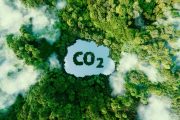The Intergovernmental Panel on Climate Change (IPCC) — the Geneva-based international body set up by the UN to disseminate “climate change” information — made public a report in Yokohama, Japan, on March 31 asserting that the impacts of global warming are likely to be “severe, pervasive, and irreversible.” (The official title of the report, made by the IPCC’s Working Group II, is “Climate Change 2014: Impacts, Adaptation, and Vulnerability.”)
“Nobody on this planet is going to be untouched by the impacts of climate change,” IPCC chairman Rajendra Pachauri told journalists at a news conference in Yokohama.
In 2007, Pachauri shared a stage with former Vice President Al Gore at the Nobel Peace Prize award ceremonies in Oslo, Norway, where he represented the IPCC. The IPCC shared the prize with Gore that year “for their efforts to build up and disseminate greater knowledge about man-made climate change, and to lay the foundations for the measures that are needed to counteract such change.”
Since then, Gore has come under criticism and even ridicule, as many of his past claims have been discredited. In 2007, 2008, and 2009, Gore publicly warned that the North Pole would be “ice-free” by around 2013 because of alleged “man-made global warming.” However, satellite data compiled in late 2013 indicated that Arctic ice cover — far from shrinking — had actually expanded 50 percent over 2012 levels.
As was noted in an online article posted by The New American last December 18:
In September, meanwhile, data also showed that sea ice levels in Antarctica had expanded to record levels for the second year in a row. Of course, by now, virtually everyone who has been following news about “global warming” — now more often referred to as “climate change” owing to public-relations concerns — also knows that global temperatures have not risen for some 17 years. The spectacular lack of warming demolished all 73 of the “climate models” used by the United Nations to push its controversial theories.
Despite the fact that the theory of “global warming” that claims it is caused by human activity (anthropogenic warming) has been so discredited that its proponents now prefer the vaguer designation “climate change,” much of the mass media has given the IPCC a free pass on its latest document. A BBC report on March 31 noted that the report released at Yokohama is the second of a series “that outlines the causes, effects and solutions to global warming” and that “the prognosis on the climate isn’t good.”
BBC paraphrased Dr. Chris Field, the chair of the IPCC report, who said there is nothing inevitable about the worst impacts on people and nature and who asserted that “we can cut emissions to reduce the risks of catastrophe and adapt to some changes that will inevitably occur.… Cutting local air pollution from, say coal, can also reduce carbon emissions that cause warming.”
Even as many promoting the global-warming theory have moderated their language in the interest of restoring credibility, others on the same side of the table have actually employed more alarmist language, as if to compensate for the lack of climatic temperature increase by turning up the verbal heat. Even Dr. Field, BBC “is worried that an apocalyptic tone will frighten politicians so much that they’ll abandon the Earth to its fate.”
An article in the Sydney Morning Herald for March 31 reflected this apocalyptic tone. The report cited Helen Berry, associate dean in the faculty of health at the University of Canberra, who, while conceding that the Earth has been warmer and colder at different points in our planet’s history, asserts that the rate of change has never been as fast as it is today.
“What is remarkable, and alarming, is the speed of the change since the 1970s, when we started burning a lot of fossil fuels in a massive way,” said Berry. “We can’t possibly evolve to match this rate [of warming] and, unless we get control of it, it will mean our extinction eventually.” (Emphasis added.)
While the Summary for Policymakers of the IPCC report uses the term extinction only for non-human species, it does warn of the “risk of mortality and morbidity during periods of extreme heat, particularly for vulnerable urban populations and those working outdoors in urban or rural areas.”
Even if human-caused global warming could be proven, such dire predictions ignore the marvelous historic adaptability of humans, who have thrived in climates ranging from the Arctic to the Sahara.
Furthermore, as a writer in the Melbourne, Australia, Herald Sun on April 1 notes:
As temperatures rise, there will also be fewer cold spells and hence fewer people dying from the cold. Since in almost all regions of the planet, cold kills many more people than heat, it is likely that overall fewer people will die because of temperatures.
Other reports have comments on the economic impact of so-called global warming. An article citing the UN report from CNN on March 31 asserts that “the effects of climate change could cost governments around the world more than $100 billion a year” and that “a temperature rise of 2 degrees Celsius will wipe out up to 2% of the world’s income by 2050.”
These dire predictions were refuted by Breitbart contributor James Delingpole, who observed in a March 26 report that cited leaked reports from Working Group II of the IPCC’s Fifth Assessment Report stating that a 2.5 degrees Celsius rise in global temperatures by the end of the century will cost the world economy between just 0.2 and 2 percent of its GDP.
Noted Delingpole: “Even if you accept the more alarmist projections of the IPCC’s reports on ‘global warming,’ the fact remains that future generations will be considerably richer than our own — and therefore far more capable of mitigating the damages of climate change when or if they arise.”
Because of the alarmist nature of the IPCC report’s Summary For Policymakers, economist Richard Tol — a Working Group II author — asked on March 25 for his name to be removed from the Summary. He said: “The message in the first draft was that through adaptation and clever development these were manageable risks, but it did require we get our act together.”
“This has completely disappeared from the draft now, which is all about the impacts of climate change and the four horsemen of the apocalypse.”
Of course, any predictions about the potential effects of global warming or how to deal with it are moot if such warming does not occur, as many credible scientific studies indicate.
After the IPCC released a summary of its earlier global-warming report last September, The New American cited Professor Judith Curry, chair of the School of Earth and Atmospheric Sciences at the Georgia Institute of Technology, who was highly critical of IPCC’s claim that their “experts” were 95-percent sure that humans were to blame for global warming.
“How they can justify this is beyond me,” said Curry. “It makes no sense that the IPCC was claiming that its confidence in its forecasts and conclusions has increased.” She continued: “This is incomprehensible to me; the IPCC projections are overconfident, especially given the report’s admitted areas of doubt. The consensus-seeking process used by the IPCC creates and amplifies biases in the science. It should be abandoned in favor of a more traditional review that presents arguments for and against — which would better support scientific progress, and be more useful for policy makers.”
Meteorology Professor Richard Lindzen of MIT, who served as a lead author with the third IPCC report, said that the UN climate body had “truly sunk to a level of hilarious incoherence” in its 2013 assessment.
“In attributing warming to man,” notes Lindzen, “they fail to point out that the warming has been small, and totally consistent with there being nothing to be alarmed about. It is quite amazing to see the contortions the IPCC has to go through in order to keep the international climate agenda going.”
As has been noted in several articles in The New American in recent years, not only has the threat of global warming been exaggerated, the Earth may actually be facing a period of global cooling. As one example of this, climate scientist and accredited IPCC reviewer Nic Lewis noted that if 2001, 2002, or 2003 were used as a starting point, data suggests that the planet has actually been cooling by a relatively insignificant 0.02 C to 0.05 C per decade.
An article for CNSNews posted last September 30, cited a statement from Dr. John Christy, professor of atmospheric science and director of the Earth System Science Center at the University of Alabama Huntsville (UAH), that there has been no statistically significant global warming for the past 17 years. Christy told CNSNews that he analyzed all 73 models used in the IPCC’s then-latest report and found that not one accurately predicted that the Earth’s temperature would remain flat since 1996.
Christy found that “all show a lack of warming over the past 17 years.”
“All 73 models’ predictions were on average three to four times what occurred in the real world,” Christy pointed out. “The closest was a Russian model that predicted a one-degree increase.”
“It’s a very embarrassing result for the climate models used in the IPCC report,” Christy told CNSNews.
The article also quoted Dr. Patrick Michaels, director of the Cato Institute’s Center for the Study of Science, who said: “October 1st marks the 17th year of no global warming significantly different than zero and those 17 years correspond to the largest period of CO2 emissions by far over any other 17-year period in history.”
Finally, the Nongovernmental International Panel on Climate Change (NIPCC), a group of distinguished scientists — many of whom had previously done work for the IPCC — released a report today that comes to almost diametrically opposite conclusions of the IPCC report, noting that the IPCC excluded data from its report that didn’t agree with its conclusions. Joseph Bast, who works with the group, highlighted some of the group’s conclusions in Forbes: There is little risk of global food insecurity owing to higher levels of CO2, as higher CO2 will greatly aid plant productivity; “No changes in precipitation patterns, snow, monsoons, or river flows that might be considered harmful to human well-being or plants or wildlife have been observed that could be attributed to rising CO2″; and little risk to aquatic or dry-land ecosystems. The NIPCC has released five major reports on global warming that analyze both the causes and levels of climate fluctuation, as well as the errors and flaws in the IPCC reports.
While some global-warming extremists are warning that mankind may face extinction due to global warming, more responsible scientists have indicated the only thing facing extinction is global warming itself.
Related articles:
Top Scientists Slam and Ridicule UN IPCC Climate Report
Despite Lack of Global Warming, UN Sure Humanity Is to Blame
Obama & Allies Tell UN to Cover for Lack of Global Warming
Amid UN Climate Deception, Experts Decry Corruption of Science
Global Climate Warming Stopped 15 Years Ago, UK Met Office Admits
“Climate Science” in Shambles: Real Scientists Battle UN Agenda
White House Launches Climate Change Website
The Real Agenda Behind UN “Sustainability” Unmasked
IPCC Researchers Admit Global Warming Fraud
U.S. Agencies Accused of Fudging Data to Show Global Warming
Climate Alarmists Push Chinese Communism, Population Control
Climate Scientist: “Global Warming Nazis” Threaten Humanity
UN Decrees “Carbon Budget” for Humanity
Australia Reining in Climate Schemes After Voters Reject Carbon Tax
Obama Ludicrously Links California Drought to Climate Change
No Proof of Man-Made Climate Change, Says Greenpeace Co-founder
UN Carbon Regime Would Devastate Humanity
Global Warming Alarmists, Looking Ridiculous, Double Down
NASA Data: Global Warming Still on “Pause,” Sea Ice Hit Record




